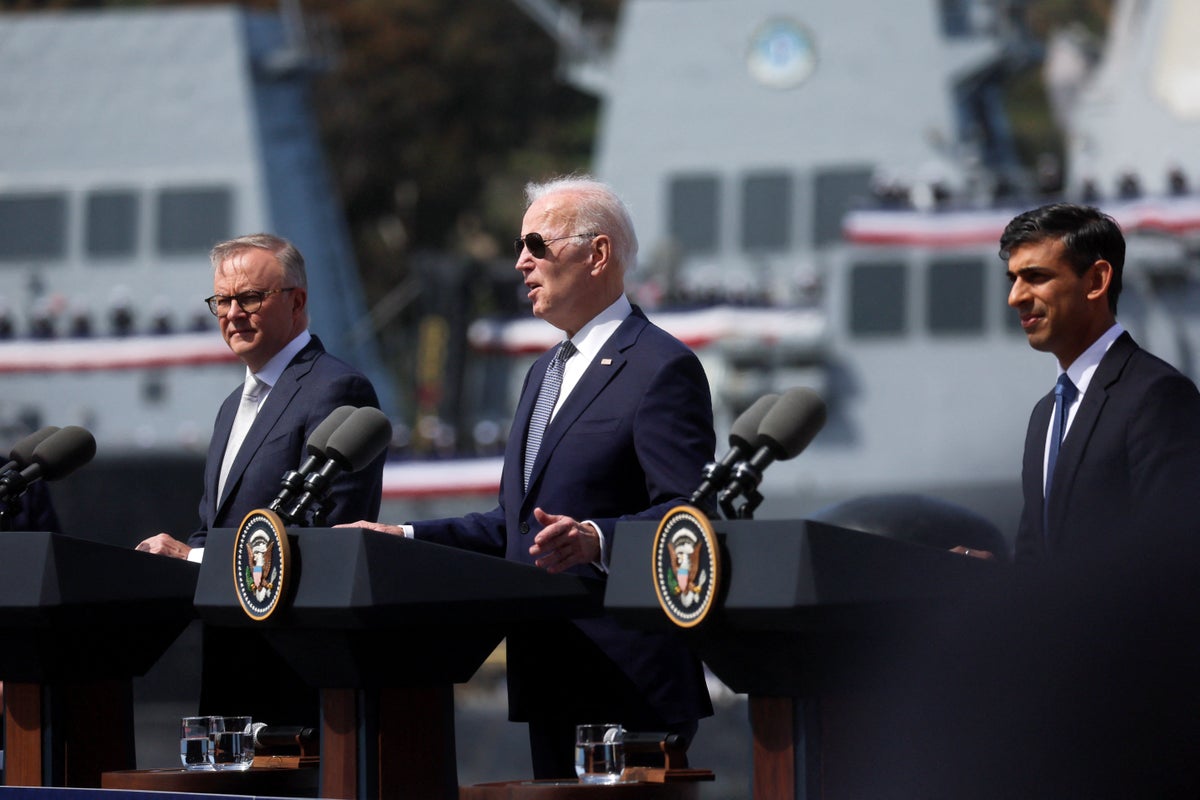
Britain will double its number of hunter-killer submarines under the AUKUS agreement with the United States and Australia aimed at countering the growing threat presented by China in the Indo-Pacific region.
Leaders of the three allies set out details of the plan at a summit in California on Monday with Rishi Sunak, the prime minister, hailing the deal as “the most significant multilateral defence partnership in generations”. US President Joe Biden said the deal puts all three nations in the “strongest possible position”.
The Aukus deal will see the new boats in operation in the late 2030s following a construction phase that will create thousands of jobs in shipyards across the UK. The vessels will be built with shared US technology and will enable the Australian Navy to construct its first fleet of elite SSN-AUKUS nuclear-powered subs.
The UK’s submarines will mainly be built by BAE Systems at Barrow-in-Furness, Cumbria, and Rolls-Royce and will replace the Royal Navy’s Astute-class boats when they enter into operation.
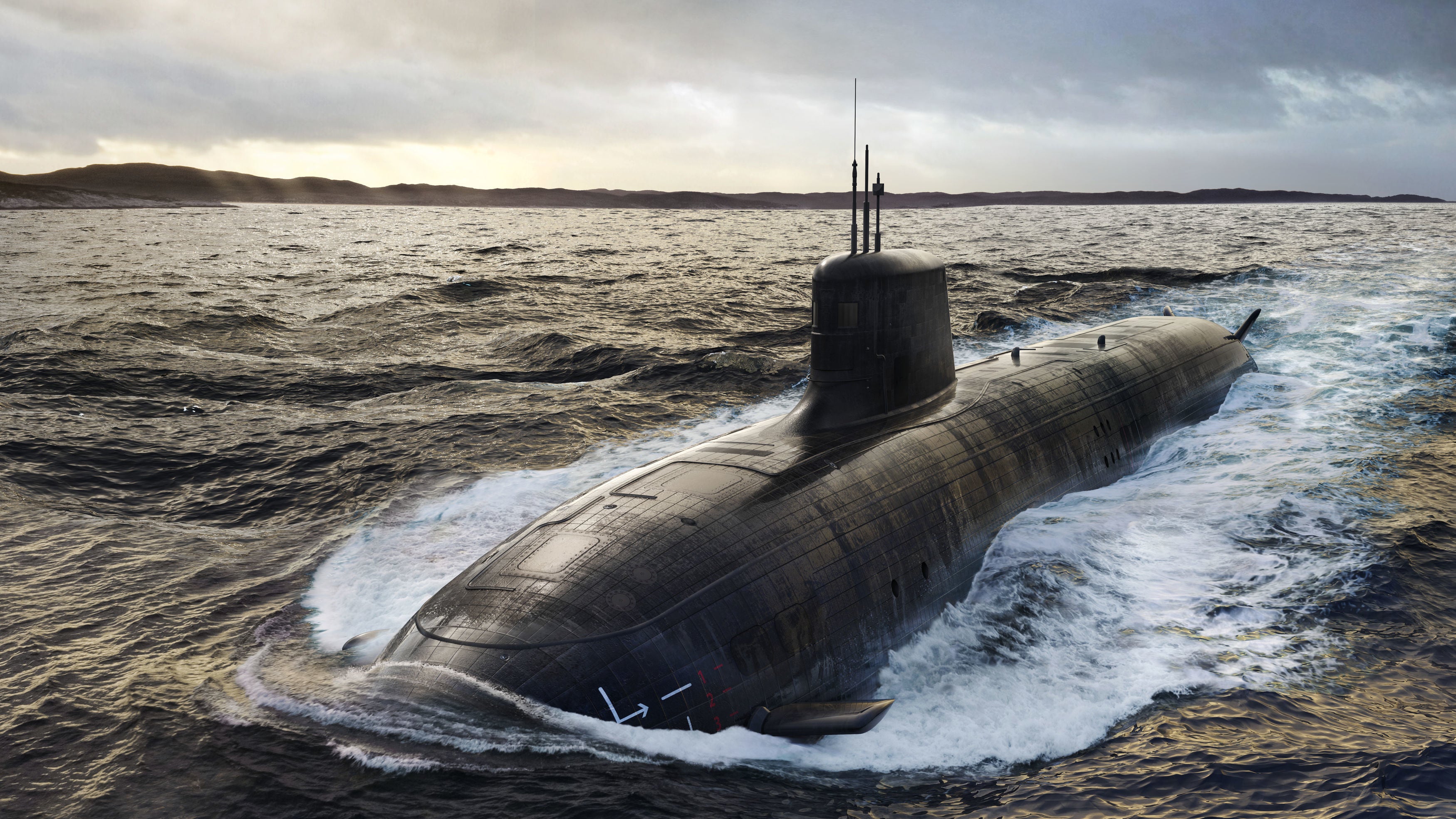
Australia’s boats will be built in South Australia, using some components manufactured in the UK, and will be in service in the early 2040s. Mr Sunak, US President Joe Biden and Australian prime minister Anthony Albanese met in San Diego to announce the next stage of the Aukus programme on Monday.
As part of the agreement, Australia will buy US Virginia-class submarines in the 2030s as a stop-gap measure until the new vessels are operational. The new submarines will also incorporate US technology.
The Aukus partnership was announced in 2021 as Australia sought to respond to China’s assertive actions in the Pacific.
The latest stage comes as the UK publishes its updated integrated review of foreign and security policy, which highlights China’s “more aggressive stance”.
The deal caused a diplomatic rift with France, which had expected to supply diesel-powered submarines to the Canberra government.
The £5 billion extra for defence announced by Mr Sunak will partly help develop the next phase of the Aukus programme.
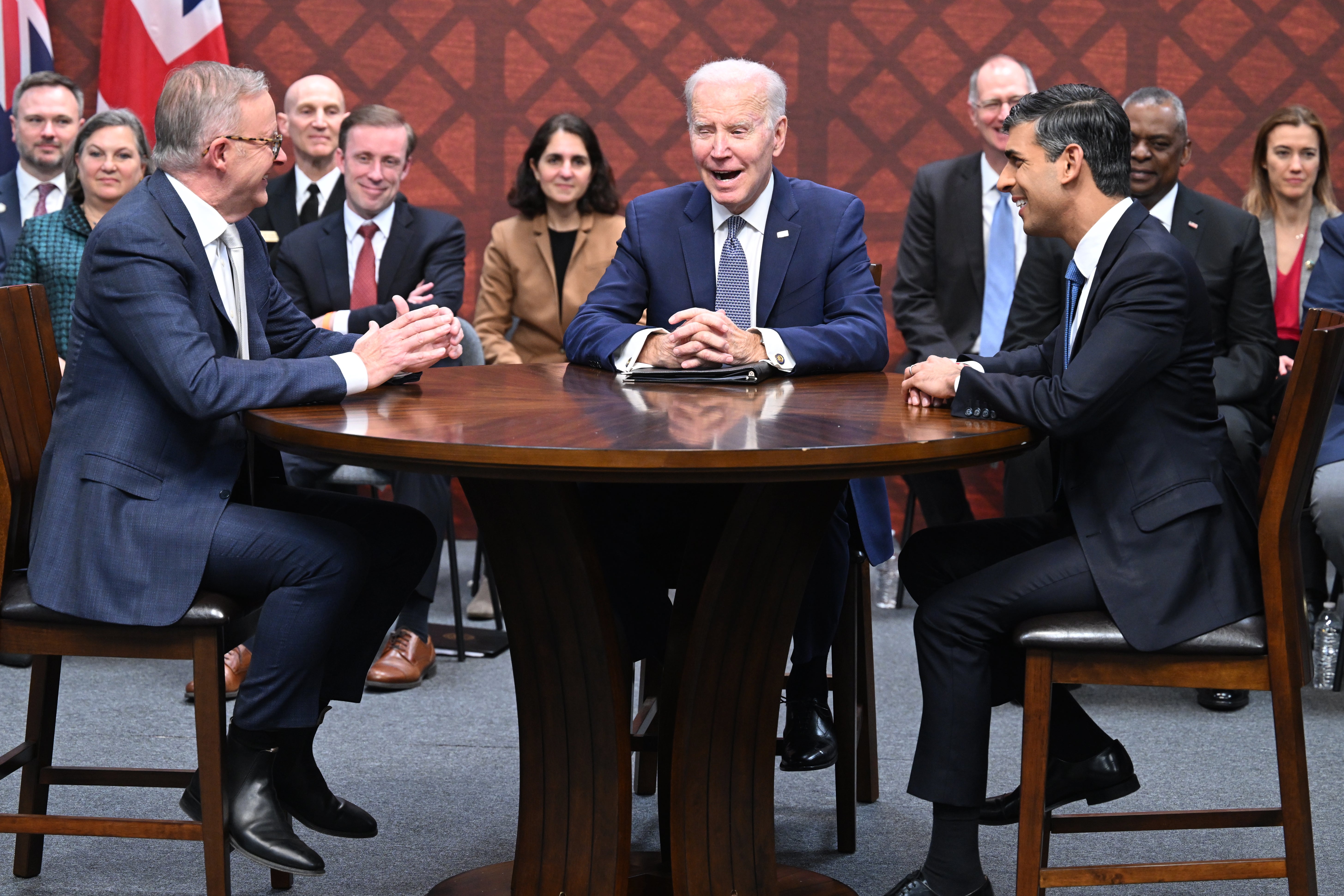
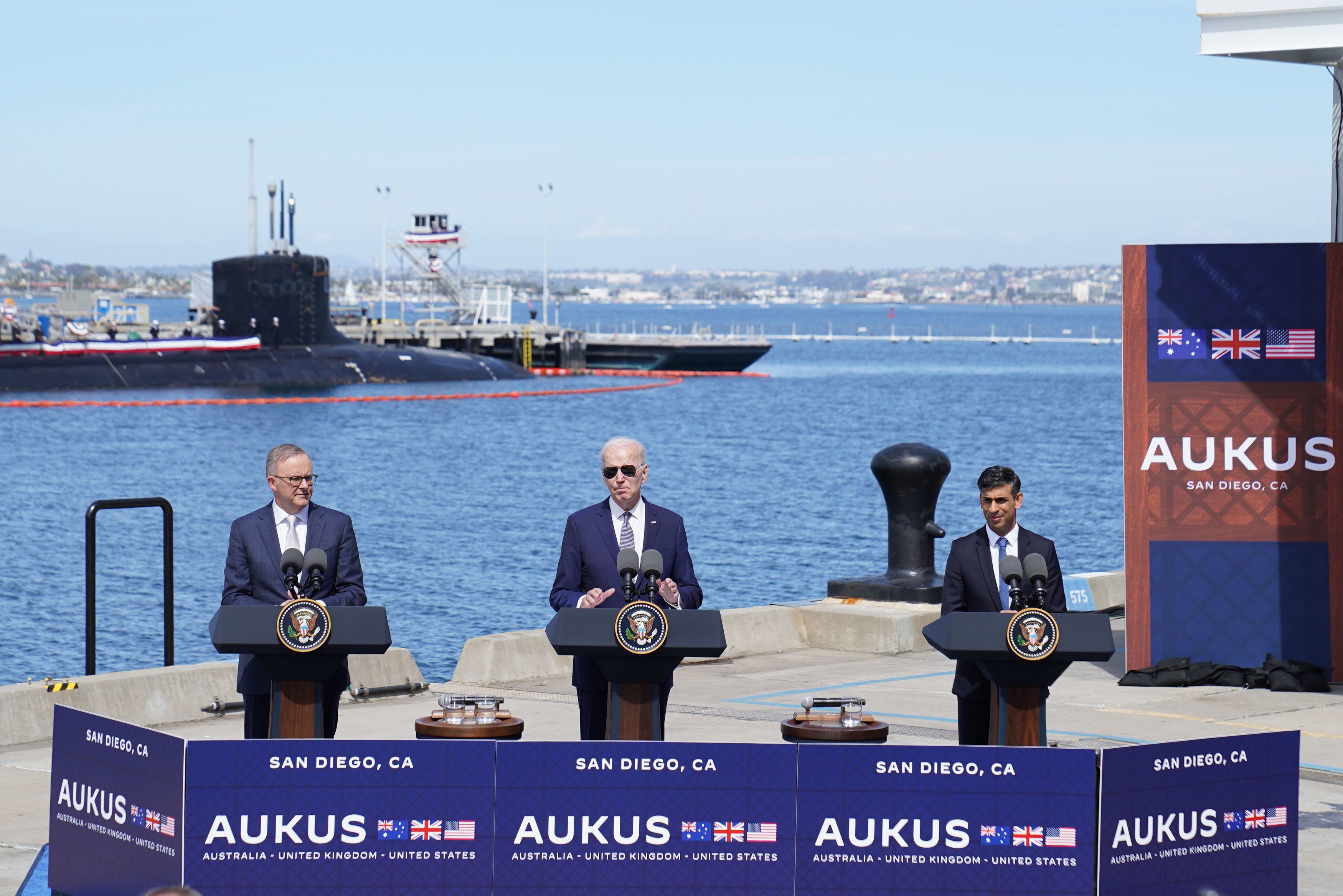
This will be followed by sustained funding over the next decade and will build on the £2 billion invested last year in our Dreadnought-class submarine programme.
Mr Sunak said: “Aukus matches our enduring commitment to freedom and democracy with the most advanced military, scientific, and technological capability,” he said.
“For the first time ever, it will mean three fleets of submarines working together across both the Atlantic and Pacific, keeping our oceans free, open, and prosperous for decades to come.”
Ben Wallace, the defence secretary, said: “This is a significant step forward for our three nations as we work together to contribute to security in the Indo-Pacific and across the world.
“Supporting thousands of jobs across the UK, with many in the north-west of England, this endeavour will boost prosperity across our country and showcase the prowess of British industry to our allies and partners.”
The Aukus programme will result in closer collaboration between the three nations.
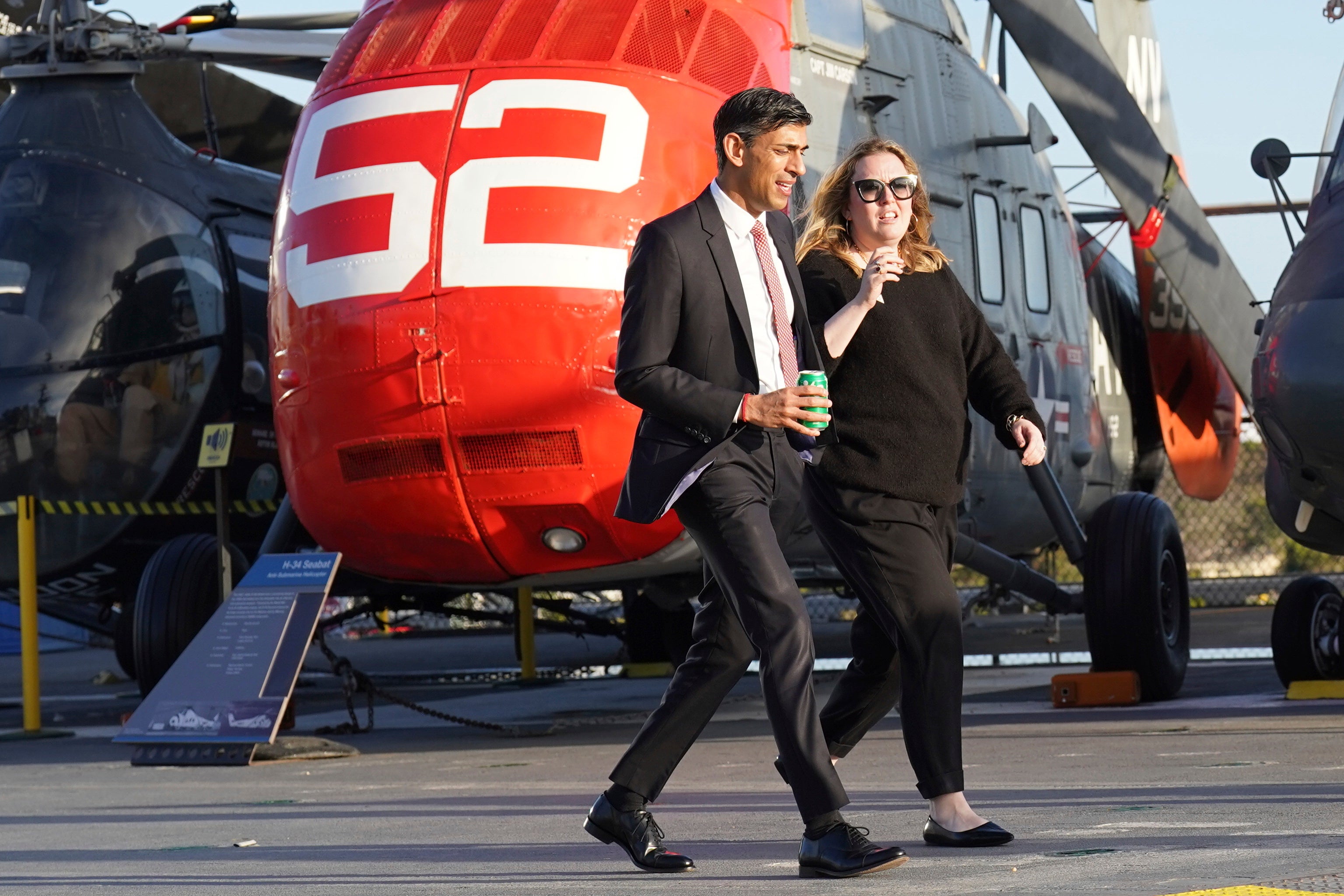
Beginning in 2023, Australian military and civilian personnel will embed with the US Navy and Royal Navy, and in the two countries’ industrial bases to accelerate the training of Australian personnel.
The US plans to increase port visits by nuclear-powered submarines to Australia this year, with the United Kingdom increasing visits in 2026.
From 2027, UK and US boats could be deployed on “forward rotation” to Australia to help develop training and expertise.
The three nations insisted that the deal did not increase the risk of nuclear proliferation.
The vessels will carry conventional weapons and the nuclear reactors will be sealed shut and not require refuelling in their lifetimes.







